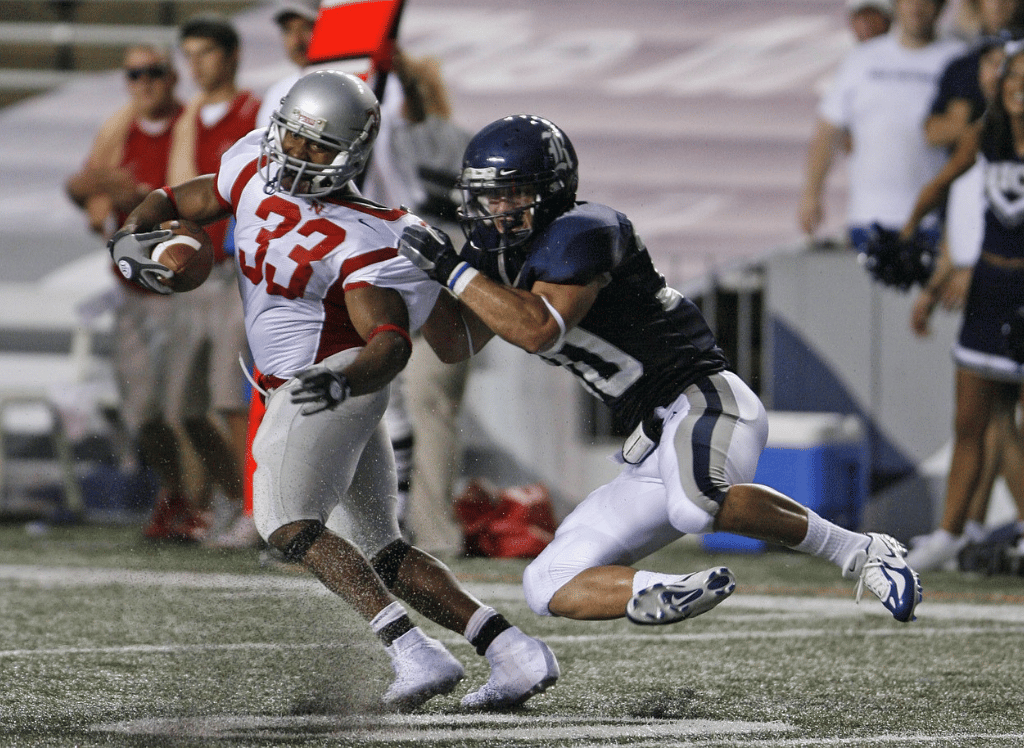You’ve made it through endless player injuries, survived from all the season long trash talk from your friends Phil, Dung, or Mike, and successfully navigated the bye-week apocalypse. Congrats, you’re now heading into the fantasy football playoffs! But wait—how do they actually work?
Understanding how the fantasy football playoffs are structured is the key to getting that championship trophy and not just your league’s group chat teasing.
During this time, managers are focused on accumulating fantasy points and climbing the league standings.
The goal? To make the playoffs and have a shot at the coveted league champion title. It's a season-long chess match, where every move counts, and the stakes are as high as a Hail Mary pass in the final seconds of a game.
What are the Fantasy Football Playoffs?
Fantasy football playoffs is an elimination tournament. It's like the Mortal Kombat fights in a video game—except instead of dodging attacks, you’re pitting your players against your league rivals’ picks in head-to-head matchups.
This tournament format typically happens in the last few weeks of the NFL season (weeks 15–17), after the regular fantasy season is wrapped up. It's where league champions are made and the Toilet Bowl Champion (loser) is kindly reminded they owe the league pizza money.
During the fantasy playoffs, only the best teams from your league make it to battle for ultimate glory. The format and rules? Well, they depend entirely on your league setup.
But don't worry, we’re about to explain the most common playoff formats—so keep reading.
Playoff Format: The Road to Glory
The fantasy football playoffs are where the rubber meets the road. Most leagues adopt a playoff format with the top teams from the regular season advancing to the postseason. Typically, the top four to six teams make the playoffs, depending on the league's settings. Some playoff structure includes a bye for the top seeds, giving them a week to rest their fantasy team and strategize for the 2nd-round playoffs.
The first round usually features the third seed facing the sixth seed, and the fourth seed taking on the fifth seed. The winners advance to face the top two teams, who enjoyed a bye week. This bye week setup ensures that the 2 best records in the regular season is rewarded.
Common Fantasy Football Playoff Formats
1. Traditional Bracket Playoffs
This is the most common setup. The top four or six teams enter a single-elimination tournament to determine the league champion.
- Four-team leagues typically see the top 4 teams make the playoffs and play head to head matchups.
- Six-team leagues often structure it so that seeds 1 and 2 get a bye week to reward their regular season dominance, leaving seeds 3–6 to duke it out in the opening round.
If you're wondering how lower teams have even the faintest chance— it’s all about that playoff magic.
Anything can happen in a one-and-done game.
2. Points-Based Playoffs
Points-based playoffs are for leagues looking to add an extra day of chaos into the thrill of the fantasy postseason. Here, instead of direct head-to-head battles, teams focus on accumulating the most points over a set number of final weeks (usually two to three).
The advantage here? A terrible week (shoutout to those times your RB scores two points) won’t immediately kick you out of the running. The team with the most total points at the end wins the league. Bye weeks? What are those?
3. Consolation Playoffs
What happens to those who couldn’t punch their ticket into the big playoff bracket? Welcome to the much less glamorous worlds of The Toilet Bowl or consolation brackets. Think of it as the Hunger Games for pride.
One popular option here? The lowest-seeded team ends up with a “punishment.” From wearing ridiculous costumes to obnoxious Venmo memos marked “loser tax,” punishment leagues remain undefeated in creativity.
How Seeding Works
Seeding is pretty straightforward—or as straightforward as fantasy football drama allows.
- Overall Record: This is your win/loss record by the end of the regular season
- Total Points Scored: A tie between records? Say hello to points scored across all the games often jumping into "WHO scored better".
The Matchups
Once the playoffs start, it's all about head-to-head matchups. Each week, fantasy teams go toe-to-toe, with the winner advancing to the next round. The key to success in these matchups is a well-crafted starting lineup. Managers must decide which players to start and which to bench, based on matchups, injuries, and recent performance. It's a delicate balance, akin to choosing between a rock and a hard place.
The playoff schedule is designed to test a manager's mettle. With the NFL playoffs looming, fantasy managers must stay informed about NFL games, player performances, and potential injuries, or even the potential top player's rest weeks. The stakes are high, and every decision can make or break a team's championship hopes. It's a high-wire act, where one slip can send a team tumbling out of contention.
The Championship Game
The fantasy football championship game is the pinnacle of the fantasy season. It's where legends are made, and bragging rights are earned. The surviving teams face off in a winner-takes-all matchup, with the league champion crowned at the end of the week. The pressure is immense, and every point counts.
In the championship game, managers pull out all the stops. They analyze every matchup, and consult the fantasy football gods for a little extra luck. It's a nerve-wracking experience, but the thrill of victory makes it all worthwhile. For the winner, it's a moment of glory, while the runner-up is left to ponder what might have been.
Consolation Playoffs for Toilet Bowl Champion?
For teams that didn't make the cut for the championship playoffs, many leagues offer consolation playoffs. These are designed to keep the entire season engaging for all managers, giving them a chance to compete for a consolation prize or simply to avoid finishing last. It's a chance for redemption, where managers can prove their mettle and end the season on a high note.
Consolation playoffs often feature a similar format to the championship playoffs, with head-to-head matchups determining the winner. While the stakes aren't as high, the competition is still fierce, and the opportunity to play spoiler or earn a consolation prize or avoid being the Toilet Bowl Champion is motivation enough for many managers.
The Fantasy Football Commissioner
Behind every successful fantasy football league is a dedicated league commissioner. This top dog is responsible for setting the league's rules, managing the playoff structure, and ensuring that everything runs smoothly. The commissioner is the glue that holds the league together, and their efforts often go unnoticed.
The league commissioner plays a crucial role in the playoffs, ensuring that the playoff format is fair and that all managers are aware of the league's settings. They also handle any disputes that arise, acting as the final arbiter in matters of contention. It's a thankless job, but one that is essential to the success of the fantasy football season.
Fantasy Football Playoffs FAQ
When do fantasy football playoffs start?
Fantasy football playoffs typically start in Week 14 of the NFL season, depending on your league's settings. It's important to check your league's schedule to know the exact dates.
How many teams make the playoffs in most leagues?
In most leagues, four to six teams make the playoffs. The exact number depends on the league's settings and the total number of teams in the league.
What is a first-round bye in fantasy football playoffs?
A first-round bye is a reward for the top seed(s) in the playoffs, allowing them to skip the first round and automatically advance to the next round. This gives them an advantage in getting closer to the Championship Title.
Summary
Fantasy football playoffs are the thrilling climax of the fantasy football season, where top teams battle for the championship in a series of head-to-head matchups. Understanding the playoff format and league settings is crucial for success, as managers must navigate the challenges of the postseason with skill and strategy. Whether you're competing for the championship or participating in consolation playoffs, the fantasy football playoffs offer excitement, drama, and the chance for glory.
Just don't be Last.









